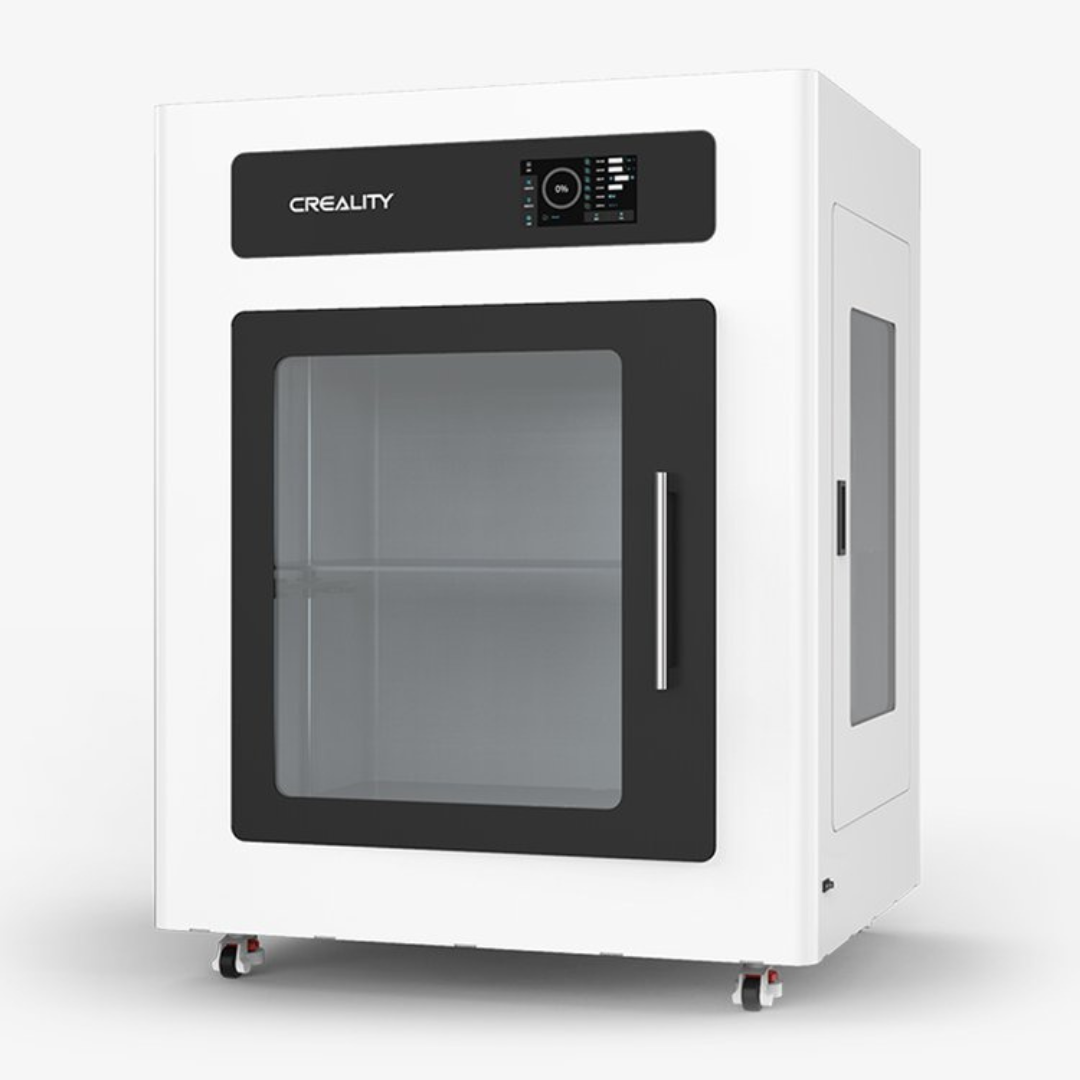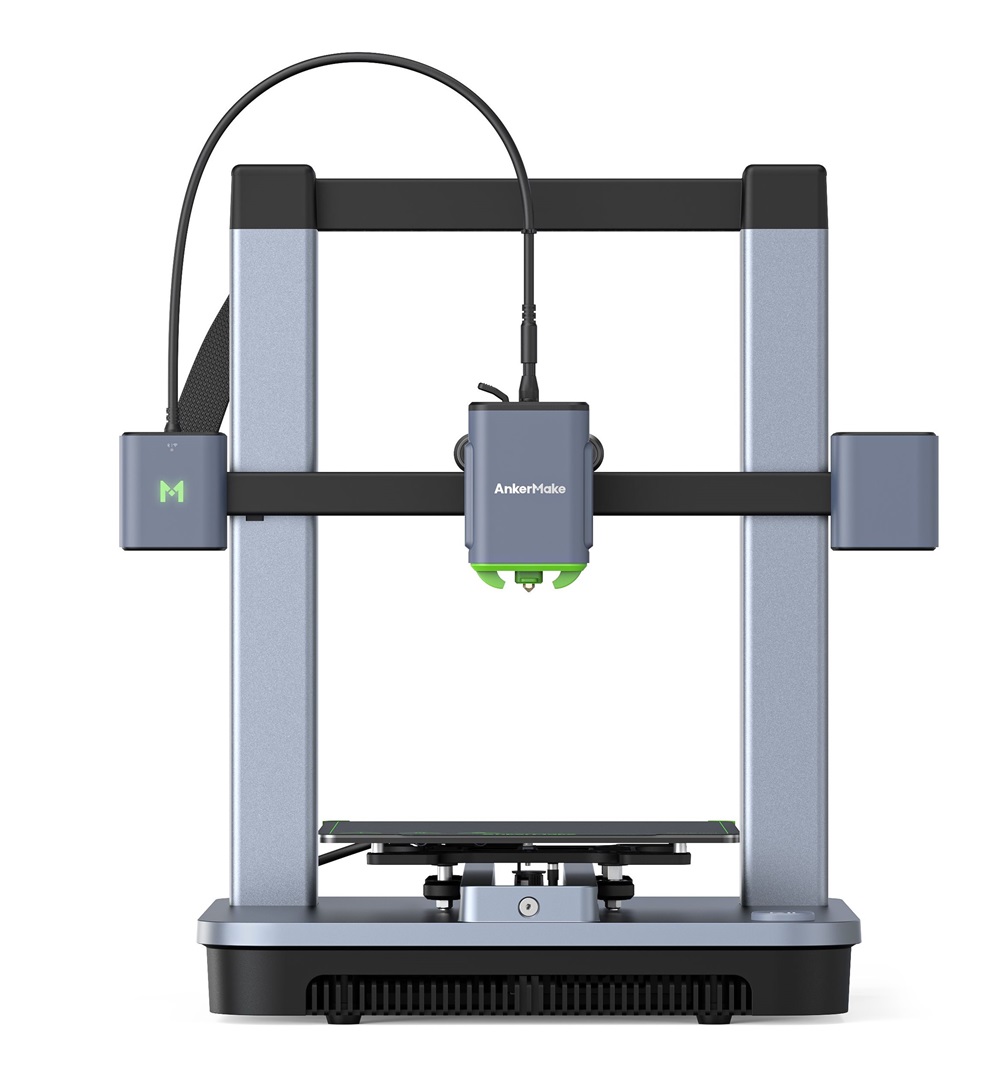Compare CR 5060 PRO vs M5C
Comparison between the best 3D printers
Choose the best 3D printer at the best price. The cheapest 3D printers are here.
Buy a 3D printer here with 3D Fila.
 |
 |
|
| Model | CR 5060 PRO |
M5C[BUY M5C] |
| Printing Material | Filament | Filament |
| Buy Filament for Creality 3D CR 5060 PRO | Buy Filament forAnkerMake M5C | |
| Estimated price | $4500,00 | $399,00 |
| Manufacturer | Creality 3D | AnkerMake |
| Release Year | 2021 | 2023 |
| Print Volume [mm] | 500x500x600 | 220x220x250 |
| Printer Size [mm] | 905x800x1150 | 466x374x480 |
| Weight [kg] | 140 | 9,6 |
| Power Loss Recovery | YES | YES |
| Enclosed printer | YES | NO |
| Bed Leveling | Automatic | Automatic |
| Filament End Sensor | YES | YES |
| Bed type | Heated | Heated |
| Power supply system | Bowden | Direct Drive |
| Standard nozzle | 0,4 | 0,4 |
| Maximum Nozzle Temperature [°C] | 300 | 300 |
| Maximum Bed Temperature [°C] | 110 | 100 |
| Maximum printing speed [mm/s] | 200 | 500 |
| Filament holder | YES | YES |
| Camera for supervision | NO | NO |
| Recommended filaments | PLA, ABS, PETG, PC, Nylon, Tritan | PLA, PETG, TPU, ABS, PA, PLA-CF, PETG-CF, PA-CF |
| Recommended slicers | Cura, Simplify, Slic3r | AnkerMake Studio (macOS, Windows), Simplify3D, Ultimaker Cura, PrusaSlicer |
| Maximum Resolution [mm] | 0,1 | 0,1 |
| Processor | ATMEGA 2560 | |
| Display | Display touchscreen 7'' | |
| Power Supply | 220V / 900 W | 350 W |
| Connectivity | SD / USB | Wi-Fi, USB-C, Bluetooth |
| Operating systems | Windows, Linux e Macbook | |
| Date of registration in the system | 2022-11-04 | 2024-09-11 |
| Release date | 2021 | 2023 |
| Extra features | Creality CR-5060 Pro 3D Printer: Designed to create large three-dimensional models, it offers a large workspace of 500 x 500 x 600 mm. It stands out for its fully enclosed work chamber, ensuring a constant temperature during printing, essential for the quality and precision of the models. Its robust structure, with dimensions of 905 x 800 x 1150 mm, is supported by a stable frame, providing durability and stability. The CR-5060 Pro offers easy access to the heated bed, either through the front door or the flap at the top of the casing, and includes a filament spool mounted in a lockable recess, ensuring material protection. Additionally, this printer is equipped with casters, facilitating its transport and handling in different environments. Ideal for professionals and enthusiasts looking for high quality in large-scale 3D prints. | The AnkerMake M5 printer stands out for its impressive print speed, reaching up to 500mm/s. It features AI print monitoring, an integrated camera for creating timelapses, auto-leveling bed with pressure sensor, direct extruder, flexible PEI-coated build plate, and Wi-Fi and USB-C connectivity. Assembly is quick and easy, and the printer is designed to deliver high print quality and ease of use. |
| Support for multiple colors and materials (AMS and CFS) | NO | NO |
Notes * |
||
| Cost-benefit | 4 / 10 | 7 / 10 |
| Hardware | 3 / 10 | 3.2 / 10 |
| Tela | . | . |
| Print volume | 5 / 10 | 3 / 10 |
| Performance | 2 / 10 | 4 / 10 |
| [BUY M5C] |
Conclusion |
| In conclusion, the comparison between the Creality CR 5060 PRO and the AnkerMake M5C highlights two distinct 3D printers catering to different user needs and budgets. The CR 5060 PRO, while considerably more expensive, offers a significantly larger print volume, making it ideal for professionals or enthusiasts focusing on larger models. Its fully enclosed design ensures stable printing conditions, contributing to superior print quality and precision. However, the size and weight of this printer may limit its portability and usability in smaller spaces. On the other hand, the AnkerMake M5C presents a more budget-friendly option without compromising on performance. With its swift printing capabilities, user-friendly features such as an auto-leveling bed, and a more compact size, it appeals to hobbyists and those seeking a versatile and easy-to-use printer. Moreover, its modern connectivity options provide added convenience for the user. When considering cost-effectiveness, the M5C stands out with a better cost-benefit ratio, making it suitable for a broader audience, especially beginners. Meanwhile, the CR 5060 PRO is better suited for serious users who prioritize print size and quality over budget. Ultimately, the choice between the two printers boils down to individual needs: whether one requires large-scale printing capabilities and is willing to invest more or seeks a fast, efficient, and affordable option for smaller projects. Each printer has its strengths and is designed to cater to specific user preferences within the 3D printing landscape. |

